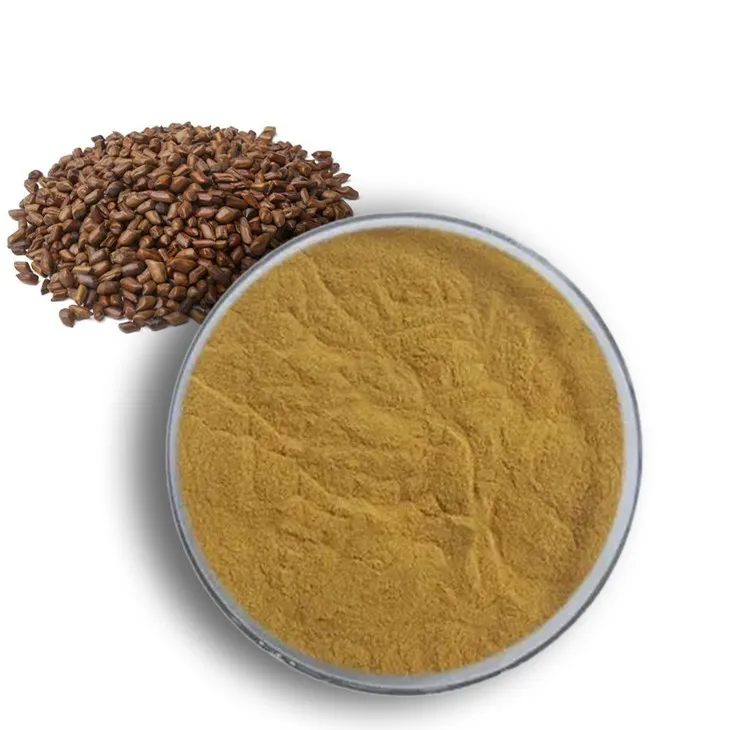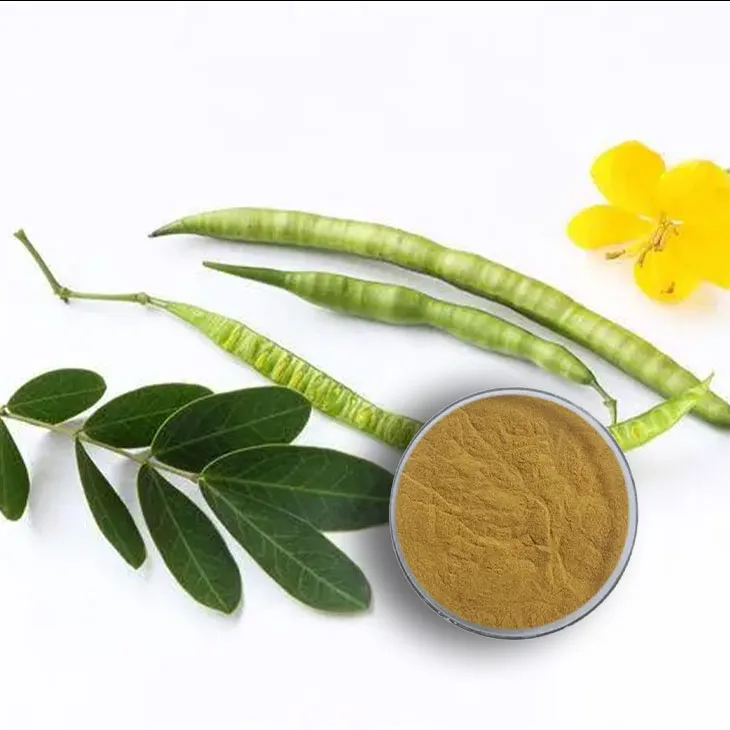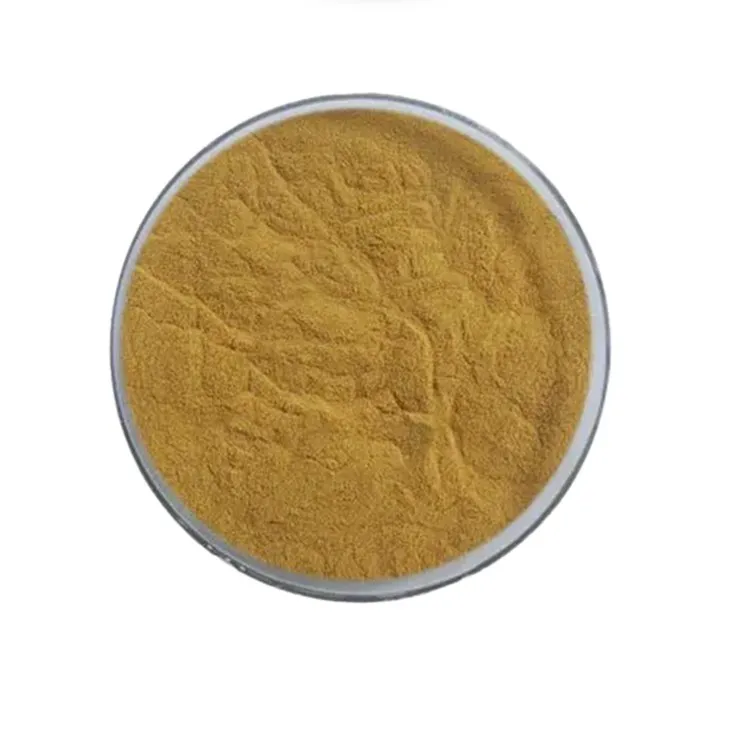- 0086-571-85302990
- sales@greenskybio.com
From Seed to Solution: The Multifaceted Benefits of Cassia Seed Extract
2024-08-14

1. Introduction to Cassia Seed Extract
Cassia seed, a plant material with a long history of use in traditional medicine, has now been studied intensively for its extract. The extraction process unlocks a plethora of bioactive compounds within the seed, which contribute to its diverse range of benefits. Cassia Seed Extract is becoming increasingly recognized in various fields, from health and wellness to agriculture.

2. Health Benefits of Cassia Seed Extract
2.1 Relief from Constipation
Cassia seed extract has been shown to have a positive effect on relieving constipation. Laxative properties are one of the key aspects of this extract. The bioactive components in the extract can stimulate the bowel movements by interacting with the intestinal tract. It can increase the peristalsis of the intestines, which is the involuntary muscle contraction that moves food and waste through the digestive system. This helps in the regular evacuation of the bowels, preventing the discomfort and potential health issues associated with constipation.
2.2 Anti - inflammation in the Body
Another significant health benefit of cassia seed extract is its anti - inflammatory properties. Inflammation is a natural response of the body to injury or infection, but chronic inflammation can lead to various diseases. The extract contains compounds that can modulate the body's inflammatory response. Anti - inflammatory agents in the cassia seed extract can target the inflammatory pathways in the cells. They can reduce the production of pro - inflammatory cytokines, which are small proteins that play a crucial role in the inflammatory process. By reducing inflammation, cassia seed extract may contribute to the prevention and management of conditions such as arthritis, cardiovascular diseases, and certain types of cancers.

3. Wellness - related Benefits
3.1 Enhancement of Mental Focus
In the realm of wellness, cassia seed extract can enhance mental focus. In today's fast - paced world, maintaining concentration is a challenge for many. The extract contains substances that can have a positive impact on the central nervous system. These substances may improve neurotransmitter function, which is essential for transmitting signals in the brain. By optimizing neurotransmitter activity, cassia seed extract can help individuals stay more focused on tasks, whether it is studying, working, or engaging in other activities that require mental acuity.
3.2 Promotion of Relaxation
At the same time, cassia seed extract also promotes relaxation. Stress has become a common part of modern life, and chronic stress can have negative impacts on both physical and mental health. The extract has components that can act on the body's stress - response system. It can help to reduce the levels of stress hormones such as cortisol. By doing so, it induces a state of relaxation, allowing individuals to feel more calm and at ease. This relaxation effect can also improve sleep quality, as stress is often a major factor contributing to sleep disorders.

4. Potential Role in Agriculture
4.1 Plant Growth Promotion
The potential role of cassia seed extract in agriculture, specifically in plant growth promotion, is an area of growing interest. Cassia seed extract may contain nutrients or bioactive compounds that can benefit plants. For example, it could potentially provide essential minerals or growth - promoting hormones. When applied to plants, the extract may enhance seed germination, which is the first step in plant growth. It can also influence the development of roots, shoots, and leaves. Root development is crucial for plants as it determines their ability to absorb water and nutrients from the soil. Cassia seed extract may stimulate root elongation and branching, leading to stronger and more vigorous plants. Additionally, it could enhance the photosynthetic efficiency of plants by affecting the development of leaves, which are the main organs for photosynthesis.

5. Research and Development
Despite the known benefits of cassia seed extract, there is still much research and development to be done. In the health field, more clinical trials are needed to fully understand the mechanisms of action and the optimal dosage for different health conditions. For example, while the anti - inflammatory effects have been observed in pre - clinical studies, further research is required to determine how these effects translate into real - world applications for patients with chronic inflammatory diseases.
In the area of wellness, research could focus on developing more targeted products based on cassia seed extract for mental focus and relaxation. This could involve formulating products that are more convenient for consumers to use, such as capsules or tinctures.
Regarding its potential role in agriculture, more field trials are necessary. Scientists need to determine the most effective application methods of cassia seed extract in different crops and soil types. They also need to study the long - term effects of the extract on soil health and the overall ecosystem. For instance, it is important to ensure that the use of cassia seed extract does not have any negative impacts on soil microorganisms, which play a vital role in maintaining soil fertility.
6. Conclusion
Cassia seed extract is a remarkable substance with multifaceted benefits. Its applications in health, wellness, and agriculture are promising. However, to fully realize its potential, continued research and development are essential. As our understanding of this extract deepens, we can expect to see more innovative products and solutions based on cassia seed extract in the future, improving human health, well - being, and agricultural productivity.
FAQ:
What are the main health benefits of cassia seed extract?
It has shown potential in relieving constipation and reducing inflammation in the body. It can also enhance mental focus and relaxation.
How can cassia seed extract be used in the agricultural field?
It can be studied for its potential role in plant growth promotion.
What makes cassia seed extract multifaceted?
Its benefits span across different fields such as health, wellness, and agriculture. In health, it helps with constipation and inflammation. For wellness, it improves mental focus and relaxation, and in agriculture, it may promote plant growth.
Is cassia seed extract a natural product?
Yes, it is. It is a source of natural goodness.
Can cassia seed extract replace chemical products in certain aspects?
It has potential in certain areas like plant growth promotion in agriculture. However, more research is needed to determine if it can fully replace chemical products. In health and wellness, it offers natural alternatives to some issues like constipation and lack of mental focus, but it doesn't necessarily replace all other solutions.
Related literature
- The Health - Promoting Properties of Cassia Seed Extract"
- "Cassia Seed Extract in Agricultural Applications: Current Research and Future Prospects"
- "Multifaceted Benefits of Natural Extracts: A Focus on Cassia Seed Extract"
- ▶ Hesperidin
- ▶ Citrus Bioflavonoids
- ▶ Plant Extract
- ▶ lycopene
- ▶ Diosmin
- ▶ Grape seed extract
- ▶ Sea buckthorn Juice Powder
- ▶ Fruit Juice Powder
- ▶ Hops Extract
- ▶ Artichoke Extract
- ▶ Mushroom extract
- ▶ Astaxanthin
- ▶ Green Tea Extract
- ▶ Curcumin
- ▶ Horse Chestnut Extract
- ▶ Other Product
- ▶ Boswellia Serrata Extract
- ▶ Resveratrol
- ▶ Marigold Extract
- ▶ Grape Leaf Extract
- ▶ New Product
- ▶ Aminolevulinic acid
- ▶ Cranberry Extract
- ▶ Red Yeast Rice
- ▶ Red Wine Extract
-
Tongkat Ali Extract
2024-08-14
-
Senna Leaf Extract
2024-08-14
-
Yohimbine Bark Extract
2024-08-14
-
Mulberry Extract
2024-08-14
-
Selenium yeast
2024-08-14
-
Nutmeg Extract
2024-08-14
-
Diosmin
2024-08-14
-
Pueraria Lobata Extract
2024-08-14
-
Avocado Extract Powder
2024-08-14
-
Polygonum multiflorum extract
2024-08-14





















